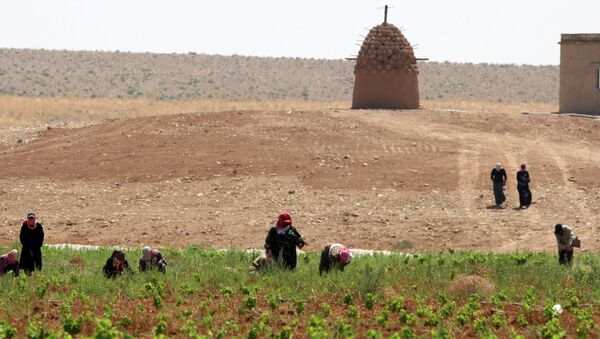Israel is readying to give away the two parcels of agricultural land - Naharaim and Tzofar - to the Jordanians on Sunday, after negotiations between the two states failed to achieve a breakthrough.
The two pieces of land were given to Israel 25 years ago as part of the peace treaty with Jordan. According to the agreement, Jordan gave its lands as a lease to Israeli farmers but had the right to either extend the lease or cease it after the 25 years were over.
Now, King Abdallah II of Jordan is claiming his territories back.
A major blow
"If no miracle happens, on Nov 10 Jordanians will close the gates and we won't be able to cultivate our lands anymore. For me it will be a major blow," said Eli Arazi, a local farmer and a member of Ashdot Yaakov, a kibbutz located on the lands close to Naharaim, adding that it is still unclear how the transition is going to work.
"We are leaving a lot of equipment behind and while it is clear that the Jordanians will let us in, especially given the fact that there is tight cooperation between the two states in this area, our control over these lands seems to be over," he said with regret.
Arazi believes that the Jordanian king had no other option but to terminate the lease simply because "he gave a promise to the opposition in his country," says Arazi, referring to the king's decision a year ago when he vowed to terminate the agreement.
But the reasoning behind the move seems to stretch far beyond that. First of all, despite promises, the water canal project that's supposed to supply water to Israel, Jordan and the Palestinian Authority from desalination facilities set up in the Red Sea, is still stuck, partially because of funding and partially because Israel that has been struggling to form a government.
So is another initiative called the Jordanian Gate that presupposed the establishment of a joint industrial zone on the lands close to Naharaim.
To make matters worse, in March a Jerusalem court ruled to close the compound of Gate of Mercy located on the Temple Mount in Jerusalem. Jordan regards itself as the custodian over the Old City's Holy sites under the 1994 peace agreement, and took the decision badly, saying that Israel had crossed a 'red line.'
Prime Minister Benjamin Netanyahu added fuel to the fire amid his election campaign in September when he vowed to annex the Jordan Valley - which makes up almost a third of the West Bank - if reelected, a move that angered Jordanians and Palestinians alike as both regard the area as part of a future Palestinian state.
Economic and historic blow
Now that the lands of Naharaim and Tzofar are moving to Jordan, the damage, says Arazi, is beyond repair. "For me as many others it is a loss of almost 200 acres of agricultural lands," said Arazi who was one of the people involved in the talks that led to the peace agreement with Jordan. "After the king announced his decision a year ago, we uprooted all our olive trees and decided not to plant avocados knowing the products might end up in Jordanian hands," he said.
But for Israel it is not only a major economic blow, as Naharaim contains symbols dear to the Israeli public.
It was here that a Jewish engineer and entrepreneur Pinhas Rotenberg established his first power station in 1932 - after purchasing the lands from King Abdallah I, leading to the developmemt of the area; and it was here that in 1997 a Jordanian soldier opened fire on Israeli school girls who had been touring the site, killing seven and injuring six others.
Yet, Azari remains optimistic and says he doesn't want to give up. "I am sure that after the government is formed, they will sit down for talks with the Jordanians and make necessary concessions to the king," he said adding that on his part he will do everything he can to make it happen.
But he remains vague on what measures he - and Israel's government - will need to take to achieve this goal: "there are things we can do but they will need to be done under the radar of the media's watchful eyes," he concluded.



